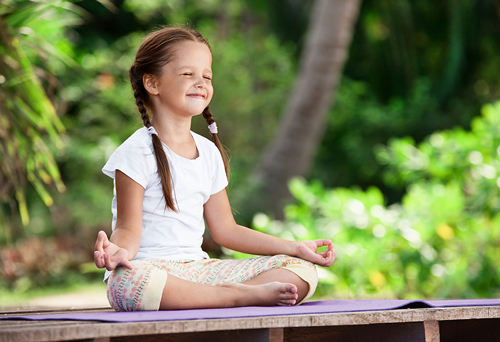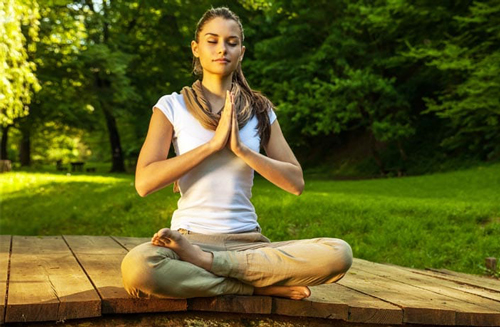Benefits of meditation
Meditation isn’t always easy. You don’t always have time for it. And maybe you just aren’t good at it. Some of us struggle with just getting the mind to shut up long enough to get a few quiet breaths in.

Here’s the thing though – we need meditation. Your excuses and past experiences don’t matter. It’s time to hack it, do something different, and just practice! The number of benefits to meditation are massive:
• stress reduction;
• lower blood pressure;
• better focus;
• better ability to handle high-pressure situations;
• immunity system boost;
• reduction of negative emotions;
• better relationships;
• developed intuition;
• better nervous system function;
• better chances of avoiding heart disease.
And that’s just scratching the surface. If you can get all this and more from just sitting there doing apparently nothing, why wouldn’t you make this a priority in your life?
Meditation for beginners is simply the practice of maintaining a sense of peace and mental calmness for a period of time. It is not about having no thoughts. To fight them trying to empty the mind completely is a waste of time and it defeats the true purpose of mediation. All you need to do is simply let those thoughts come and go. You can’t control the fact that they pop up, but you can control how you react or hang on to them.
Here are some tips for beginners:
• Listen to meditation music;
• Let the noise around you be like natural music rather than a distraction;
• Keep a soft gaze on a candle flame;
• Count your breaths to keep your left brain busy (count 1 on an inhale, 2 on an exhale, and so on up to 10 then start again);
• Stretch first so your body is loose, just like before any exercise you do;
• Have a purpose for your meditation (just being quiet is a purpose!);
• Make it a daily ritual;
• Commit to start with 10 days of meditation without skipping a day;
• Use guided meditations;
• Meditate when everyone else in the house is asleep or out;
• Meditate before you get out bed in the morning;
• Meditate at the same time every day;
• Use mala beads;
• Sit quietly and just mentally list what you’re grateful for that day;
• In the beginning, meditate few minutes a day (15-20), not hours;

• If you have a scratch, scratch it! It’s more distracting to try to ignore it;
• Write down all your thoughts, frustrations, and to-do-s on a piece of paper so you can get it out of your head before sitting down to meditate;
• Meditation has no true beginning or end so don’t worry about the destination and focus on the journey;
• Adjust your posture when you start – if you can’t comfortably take a deep breath, shift;
• Your meditation practice may not always be the same – some days will be harder than others;
• Practice with consistency is the only way it will get easier;
• It’s all right to just sit there – just sitting there and being focused on that alone creates an intentioned focus;
• Keep a journal handy to write down your cognizance understandings;
• Keep track of your excuses and then stop making them;
• Do a mediation challenge with a friend – hold each other accountable;
• Be realistic and honest with yourself about why you’re doing meditation – what are you looking for?
• Don’t judge your meditation – no meditation is good or bad – you get what you need each time;
• Turn off and drop out – shut down computers, phones, and anything that can distract you and pull you out of your meditation and back to the daily grind;
• Make use of the “me time” that you already have – meditate in the shower, on our lunch break, or while you’re walking the dog;
• Your mind will wonder and you will start to think – acknowledge when this happens and then turn your attention back to your breath, breathing in through the nose and out through the mouth;
• Begin being more present and in the moment in your every daily life – this will help your meditation practice;
• Make sure you’re sitting somewhere where you are completely safe;
• You don’t need a special mediation room – you can meditate anywhere you’re comfortable;
• Meditation is like running – you have to start small and build muscle to go long distances;
• Create a schedule for building and growing your meditation practice and then stick to it;
• If you’re meditating in the morning, do it before your morning activities;
• Don’t do your meditation after eating, especially big meals – try to meditate on an empty stomach;
• Let gravity do its thing and really feel the sensation of sitting in your body;
• Cover your eyes with something if you feel the light or outside world distracting;
• If your emotions are high and get in the way, turn your attention to your body – where do you really feel these emotions are gathering in your body? Acknowledge that, feel it, then let it go and focus back on your breath.
yogaesoteric
November 1, 2019
Also available in:
 Français
Français
